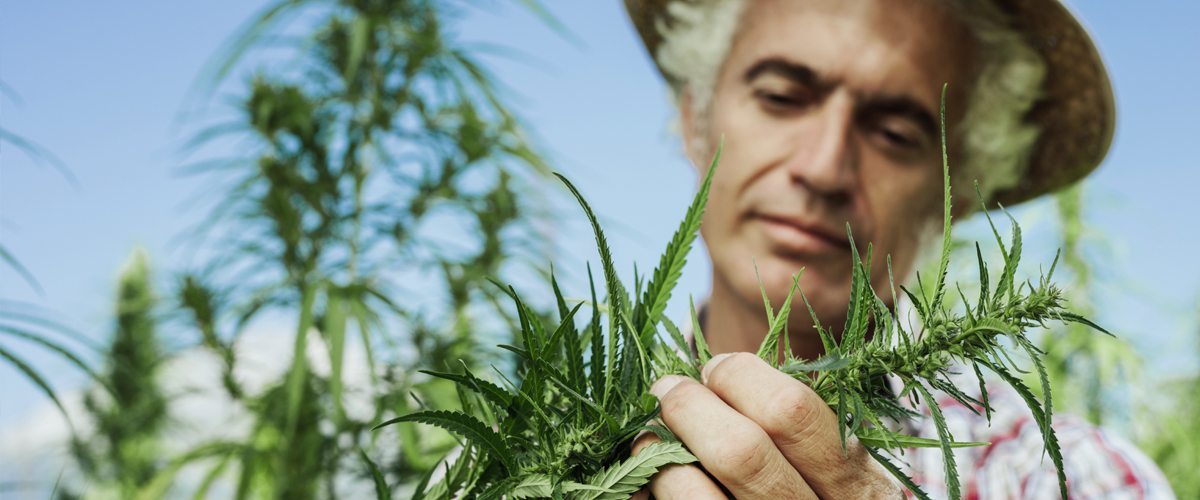A new report from researchers at The Brookings Institution concludes that “Big Marijuana,” or that massive special interest groups and lobbies are taking over the cannabis industry, shouldn’t be a big concern.
Two researchers from The Brookings Institute released a report this June, debunking the concern that special interest groups, massive businesses, and conniving lobbyists are taking over the marijuana industry.
The fear that the cannabis industry will become a corporate lobby similar to Big Tobacco and recklessly pursue financial gain without concern for the public’s health is at the forefront of arguments from critics of marijuana legalization. The most prominent marijuana prohibitionist group, Project SAM (Smart Approaches to Marijuana) even injects the fear into their motto: “preventing another big tobacco.” Opponents to marijuana legalization worry that the industry will fall under the control of a few dominant corporations that will be able to get away with manipulating and deceiving attempts at regulation.
In their paper, “Worry about bad marijuana–not Big Marijuana,” researchers Jonathan Rauch and John Hudak meticulously disassemble the argument that large corporations and lobbies are shaping the legal and social cannabis landscape.
“The marijuana industry is very unlikely to transform into something that looks like Big Tobacco during its notorious heyday,” write Rauch and Hudak. “It is more likely that a commercial and regulatory model would look like the one governing alcohol, which is regulated primarily at the state level, combines mandatory with voluntary measures to police industry conduct, does a credible job of preventing antisocial and abusive commercial behavior, and has proven stable over time and broadly acceptable to the public and the industry.”
The Brookings senior fellows also make note that the term “Big Marijuana” is routinely used yet is not clearly defined. “The term is tossed about so freely and flippantly that it has come to be a catch-all moniker with no consistent meaning, except insofar as it is consistently pejorative.”
Unlike Big Tobacco, the cannabis industry consists of a diversified medley of businesses, the researchers explain.
“A marijuana business can be a legal home grow in Ft. Collins, Colorado; a cancer-patient cooperative farm in Humboldt County; a pop-up clinic in San Francisco’s Lower Haight; an antiseptic dispensary in Bristol, Connecticut, staffed by a board certified pharmacist; a wellness center in Washington, D.C., owned by a rabbi; a vertically integrated chain of dispensaries that relies on a set of large grow facilities to supply its consumers; a maker of edibles and oils in Boulder, Colorado; and many more variations.”
Additionally, Hudak and Rausch, while acknowledging the potential downsides of a cannabis industry controlled by a few players, point out that the development of some larger companies can offer societal and consumer advantages. For example, big corporations have the resources to better follow regulations and ensure quality, have a higher visibility and thus are imposed with extra layers of reputable accountability, possess better business acumen, and help to stabilize the market.
Finally, the researchers point out that the government and society have learned from Big Tobacco and are motivated to impose regulations to avoid the same negligent business behavior.
“Should [the government] fear the Philip Morris-ization of marijuana? Yes, but not very much. Worries that industry members may advertise in ways that appeal to children, or may hide information from regulators, or may slant research, or may manipulate products to maximize dependency, are not fanciful. But marijuana is not like tobacco; the 2010s and 2020s are not like the 1960s and 1970s; and the bad example of tobacco provides a powerful prophylactic. The notion of an effectively unregulated marijuana industry doing as it pleases to the children of America is ahistorical and implausible.”
Rather than focusing primarily on firm size or the corporatization of the cannabis industry, the Brookings senior fellows conclude, legislators and government agencies should focus on establishing a regulatory environment that allows for the market to succeed while implementing regulations, laws, taxes, and incentives to encourage the avoidance of harmful practices.






